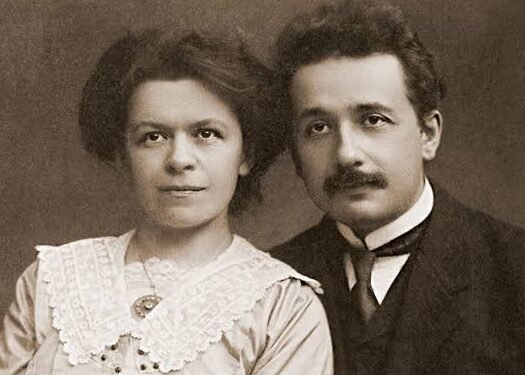
Although Lebanon’s economic situation recovered after the civil war (1975-1990), the country has experienced a gradual decline in its economy since 2011-2012, which caused the bubble to burst in 2021. Impoverishment has affected almost 80 percent of the Lebanese population.
A field study was mandatory in order to detect this breakdown and find solutions to the crisis that are difficult to achieve while the political and religious axes are still at odds.
In addition to the negative impact of GDP, the rapid hyperinflation, the lack of foreign exchange reserves at the Bank of Lebanon (BDL), which no longer responded to the stabilization of the local currency, beyond a cyclical profile of the various productive sectors in recession, has added an almost total collapse of the financial sector. Several attempts have been made to determine the distribution of losses between the State, the Central Bank, and the commercial banks, but the latter has not been determined to date.
The confusion in the losses calculation is due to the differential exchange rate compared to the US dollar. While the official rate was 1507 LL, the Central Bank created platforms in order to identify several exchange rates on different products which were in one way or another subsidized by the latter. A loss of more than US $15 billion was recorded in less than two years because of the lack of control over fraud, malpractice and smuggling in the re-export of the same subsidized products, beyond a parallel market qualified as – black market – uncontrollable by the monetary authorities and whose rate alone determines the true value of the exchange rates (at the time of writing the dollar is above LL 30,000 for a single US dollar).
This collapse proved to be the result of excess government expenditure and contractions in budget revenues. This is due to the exorbitant expenses incurred by the State without any control by the competent authorities: the crowding of civil servants (politicians), the oversupply of credits, the immoderate contracts in the operation of electricity (more than US $40 billion in recent years for a two-hour supply of electricity), the superfluous expenditure on travel and advertising, the bonuses to thousands of virtual associations, the dilapidation of public funds. All this has meant that the state budget has been in deficit over this period at more than US $5 billion annually. The State has been obliged to resort permanently to borrowing through the issuance of treasury bills and Eurobonds at huge interest rates, both on the local and international markets…
One of the direct causes of this crisis was the official waiver by the former government of the payment of creditors of the borrowing State. This has undermined the country’s local and international confidence and credibility.
The withdrawal in the settlement of debts affected the commercial banks, which in turn stopped the repayment to depositors of their debts when they did not fail to transfer large sums of money belonging to CEOs, members of their boards of directors, politically and financially influential persons, to corresponding foreign banks; this has obviously further deteriorated the cyclical situation in the country, especially since to date no legislation on capital control has been passed by Parliament.
These alarming economic flashes that are close to the cataclysm have prompted the government to resort to the International Monetary Fund so that the latter will force it to restructure all sectors failing and allow the country to regain its place on the international stage.
However, this remains uncertain in such a complex and deteriorating economic situation. The implementation of an exit plan depends on a comprehensive program drawn up jointly by the IMF and the Lebanese Government; this at more than one level:
- A new financial arrangement in the State budget would oblige the government to reprogram its expenditure and above all its revenue (customs duties, VAT, direct and indirect taxes, the obligation of all political forces to submit to the various tax instruments).
- The overhaul of the banking sector through mergers and acquisitions, leases and leases, refinancing of their own funds, and guarantees of good governance.
- The restructuring of BDL as well at the level of the assets (internal and external assets) as well as its management and relations with the State on the one hand, and commercial banks on the other, without forgetting the confidence that must be given to it by both Lebanese and foreign investors, particularly those from the Gulf countries.
Question-key remains to know in what measures is Lebanon capable of moving negotiations forward with the IMF, after more than a year of equivocation relating to the count of the State and to those of BDL?
The answer is not easy. It requires all actors involved in this crisis to be subject to IMF conditions. Without this obligatory passage, there will be no salvation for Lebanon….
This unprecedented situation in the country therefore requires urgent solutions that can only come from outside, and more specifically from the IMF, with internal officials unable to undertake any initiative on their own.
From the above, we must keep in mind that the true imbalances in the Lebanese economy, reflecting a political side in a state of collapse, stem from the fact that the country in all its components has been living for decades beyond its means within the framework of unconventional national policies and mismanagement that would have dragged on for a long time. This situation has become so degraded and untenable that risk of an implosion of the system and therefore of the country itself could arise at any time. There is therefore an urgent need for fundamental and structural solutions to eradicate the causes of this probable bursting of the bubble.
Without being either pessimistic or optimistic, however, shouldn’t salvation come from a political agreement necessary to the survival of any State?
[1] The World Bank estimates that the current crisis in Lebanon could be the third most serious in world economic history – only Chile in 1921 and Spain in 1931 experienced a more violent crisis than Lebanon.
Source of illustration: Crystal Eye Studio, shutterstock













